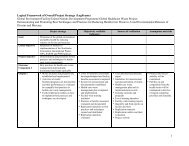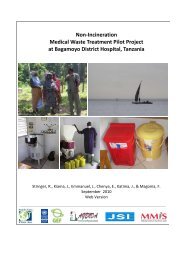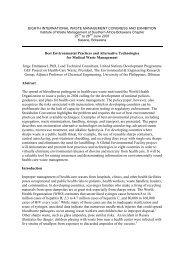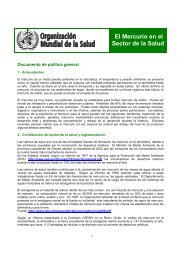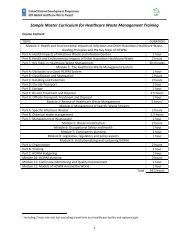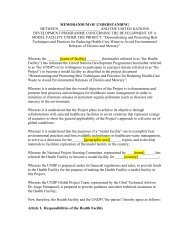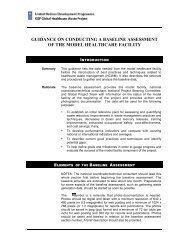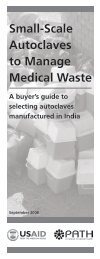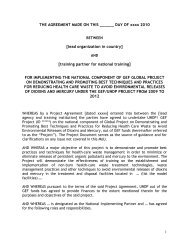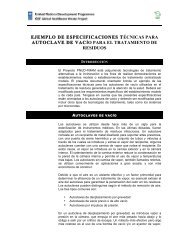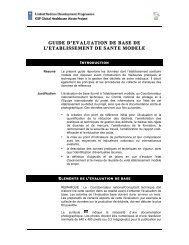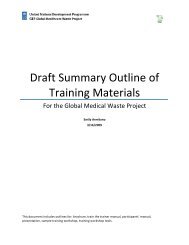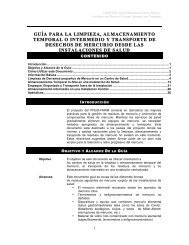Latvia
Latvia
Latvia
Create successful ePaper yourself
Turn your PDF publications into a flip-book with our unique Google optimized e-Paper software.
Health systems in transition<br />
<strong>Latvia</strong><br />
Training of health care personnel<br />
According to legislation on “Regulated Professions and Recognition of<br />
Professional Qualifications” (2003, with amendments in 2004), the diploma at<br />
the highest level of education, which is received within an accredited full-time<br />
programme of studies of medicine, as well as the certificate of professional<br />
qualification and approval in the Register of Medical Persons, is a basic<br />
requirement for proof of one’s medical qualifications, for the right to work<br />
within the doctor’s profession and for the right to practise within a particular<br />
specialty.<br />
The minimum duration of studies to receive the diploma at the highest level<br />
of medical education is six years for medical doctors. Dentistry requires a fulltime<br />
accredited study programme, the duration of which is five years. Entrants<br />
must have completed 12 years of school education.<br />
The education and training of health care personnel is provided by two of<br />
the highest educational institutions in <strong>Latvia</strong>: Riga Stradins University, which<br />
is under the supervision of the Ministry of Health; and the <strong>Latvia</strong> University<br />
Faculty of Medicine, under the supervision of the Ministry of Education and<br />
Science. Both educational institutions are located in Riga.<br />
After receiving the diploma, the doctor must continue studies within one of<br />
the doctor specialties in residency. The duration differs according to specialty,<br />
but on average it is three years. If a doctor wants to gain the right to practise<br />
medicine, s/he must obtain the certificate of professional qualification.<br />
There are no estimates in <strong>Latvia</strong> concerning either the number of doctors who<br />
are educated in other countries or in which other countries. This information may<br />
be included in the Register of Medical Persons if it is submitted by the doctors<br />
themselves. It is estimated that generally only a few doctors study abroad.<br />
Certification of doctors is delegated to doctors’ professional organizations.<br />
Every specialty has its own statutes, which define what types of skills are<br />
required and the minimum duration for postgraduate studies. These statutes have<br />
until now been approved by the Ministry of Health, but this is to change as they<br />
will begin to be approved by Regulations of the Cabinet of Ministers (“Concept<br />
Paper on Human Resources in Health Care”) as of 2006. These Regulations will<br />
determine the certified person’s responsibilities within the respective specialty.<br />
In accordance with these Regulations, the responsibility for improvement of<br />
professional qualifications lies with the individual medical doctor.<br />
The statutes regarding certification and re-certification are defined by<br />
“Regulations of the Cabinet of Ministers on Certification of Treatment<br />
Persons” (in force since 1997). The Regulations specify that certification and<br />
re-certification are the responsibility of the <strong>Latvia</strong>n Physicians Association and<br />
157



